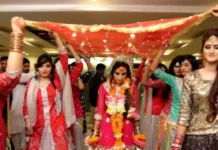The Presidential Address given by Bishop Christopher Chessun to the Southwark Diocesan Synod last Saturday has now been published online.[1] In his address the bishop sets out his view of what the outcome of the LLF process should be both for the Diocese of Southwark and for the wider Church of England. The purpose of this paper is to give an initial response to what the bishop has said, explaining why it is problematic from the perspective of traditional Anglican theology.
The first thing I want to comment on is his statement:
‘We have journeyed through the pandemic in a costly but resilient way and we have much to give thanks for, but we all know we still have some way to go before we can be confident that the Church is a welcoming and safe place for all, somewhere all can flourish without fear of discrimination or prejudice. Anything less falls short of the abundant life Christ came to bestow (John 10. 10). This is something upon which I venture to suggest we can all agree.’
At first sight this statement would indeed appear to be something on which everyone can agree. However, the problem comes with what the key words in the statement actually mean. Does the bishop think that the Church can be a ‘welcoming and safe place’ for LGBT+ people in which they can ‘flourish without fear of discrimination or prejudice’ and still be a diocese which upholds the traditional Christian conviction that a person’s sexual identity is determined by their God -given biology and that sexual activity should only take place within marriage between two people of the opposite sex? The reason for asking this question is because there are those in the Church of England who would argue strongly that this is not the case and that only unconditional affirmation of transgender identities and same-sex sexual relationships can make the Church a safe and welcoming place in which LGBT + people can flourish.
Where does the bishop stand on this issue? What he says leaves his position on the matter unclear.
Later in his address the bishop says that:
‘I also have a responsibility to ensure that the Church is safe for everyone -and at present it is not safe for those who are in same-sex unions. But we must also take care that we do not make the Church unsafe for those who in conscience cannot accept same-sex unions – making accommodations with mutual respect and forbearance is a defining characteristic of Anglican identity.’
Here again there is lack of clarity. What the bishop does not explain is why he thinks the Church is not currently safe for those in ‘same-sex unions,’ what would make it a safe place for them, or what safety would then mean for those in the Church who continue to hold that same sex sexual relationships are a form of sin of which people need to repent. What precisely does he think should happen?
While he does not give a precise answer to this question, what he does do is to suggest what he thinks should happen as a result of the LLF process. What he suggests is two things.
First, he suggests that there should be:
‘…a generous pastoral provision that respects freedom of conscience by the provision of a liturgy of affirmation and commitment for same-sex couples and a conscience clause that means no priest is required to officiate at such a service.’
Secondly, ‘on ecumenical and Anglican inter-Provincial grounds’ he suggests:
‘…. the removal of penalties for those clergy who contract a same-sex marriage, either civilly or in one of our sister Churches with whom we are in full communion.’
Presumably this would mean that licensed clergy would be free to be in, and enter into, same-sex civil marriages.
On the first of these suggestions there is again a lack of clarity as to what precisely he is proposing. What is meant by a same-sex couple? Does this mean those in a celibate covenanted friendship, or does it mean those in a same-sex sexual relationship, whether this is an informal union, a Civil Partnership or a same-sex marriage?
If he means the former then there is no problem, but if he means the latter then there is a serious problem because the principle ‘lex orandi, lex credendi’ (‘the law of praying is the law of believing’) means that the ‘liturgy of affirmation and commitment’ that the bishop proposes would involve the Church of England accepting that God approves of the unions in question. It would mean the Church of England declaring liturgically that sexual relationships outside marriage between one man and one woman are acceptable in the sight of God. [2]
This is something that the Church of England simply cannot do because the uniform teaching of the Bible and the Christian tradition, rooted in the creation accounts in Genesis 1 and 2 reaffirmed by Jesus in Matthew 19:3-5 and Mark 10:2-8, is that all sex outside heterosexual marriage is sin,[3] and the Church of England has no authority to say that it is not.
Read it all at Reflections of an Anglican Theologian










